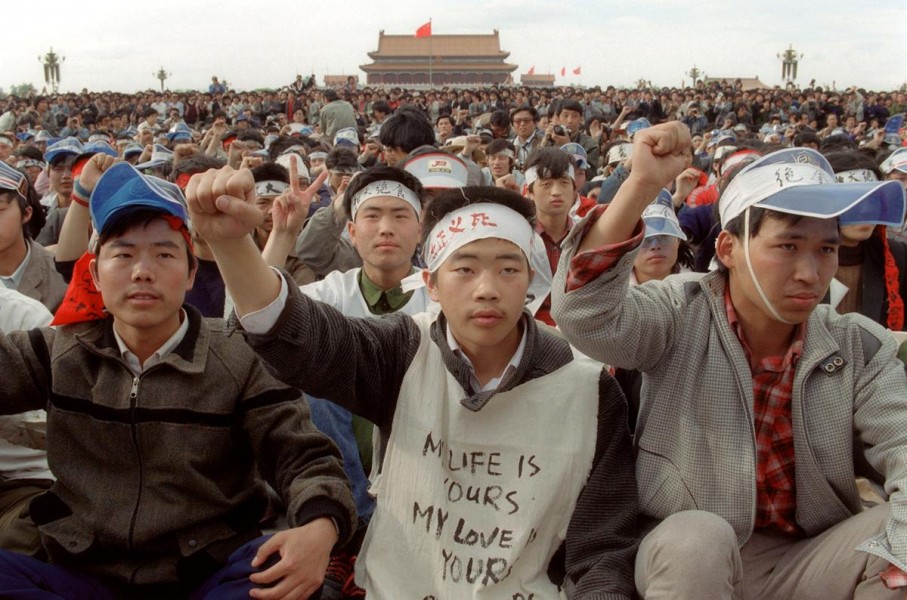Today marks the 26th anniversary of June 4, 1989, the day the People’s Liberation Army fired on large groups of unarmed protesters who were predominately students. Though official figures of the dead range from 200 to 300, international estimates generally range closer to 1,000 or more with thousands of others wounded. Aside from the loss of life and political turmoil associated with that day, the event effectively symbolized the end of a period of relative press freedom in China.
With Internet access now ubiquitous on cheaper computers and mobile devices in China, censoring information regarding the June 4th massacre has become more and more difficult for the government. Unfortunately, the censors have been working overtime to ensure the flow of information remains restricted. VPNs (Virtual Private Networks) have long allowed individuals in China to hop around the “Great Firewall”, as China’s Internet censorship is known. By connecting to a VPN server in another country, users have historically been able to receive an IP address from that country and bypass Chinese censorship with a fake geo-location.
In recent months, however, as the anniversary of the Tiananmen Square Massacre has loomed, Chinese censorship has become particularly tight, and individuals using a VPN in China have run into more and more issues. Beginning late last year, reports began emerging that major global VPN providers were blocked in China. Individuals that had used VPN services were no longer able to access an unrestricted Internet through the use of their VPN, creating problems for both users and VPN providers alike.
Fortunately we, the creators of VyprVPN, were able to respond to the increased Internet censorship of 2014 and 2015 by developing a specific technology to combat China’s even stronger online censorship. VyprVPN’s proprietary VPN protocol, called Chameleon, is able to get around the reinforced “Great Firewall” by scrambling OpenVPN packet metadata to ensure it’s not recognizable via Deep Packet Inspection (DPI), and does so while staying fast and lightweight. With Chameleon, VyprVPN users in China are able to bypass the Great Firewall of China and access a truly open, uncensored Internet.
Unfortunately, the recent crackdown on VPNs is only part of a phenomenon that has been going on for some time now. Reports of VPN-blocking in China began to first surface in early 2011, a few months before the June 4 anniversary that year. Though the initial blocks in 2011 were troublesome, the Chinese government has significantly improved the “Great Firewall” and now systematically blocks VPN software via Deep Packet Inspection.
Today, VPN providers and the Chinese government are in a constant game of cat and mouse.VPN providers and the Chinese government are in a constant game of cat and mouse. VPN providers purchase new IP addresses, implement new VPN protocols, and develop new technologies to combat Chinese censorship, but in return the Chinese government also develops new technologies for the “Great Firewall” in an attempt to thwart the innovations of most VPN companies. To compound matters, the Chinese government blocks major VPN providers’ main websites, so that they are inaccessible without the use of another VPN program. In response to this, providers have begun creating secondary mirrors of their websites, with strange names or new extensions in order to put their product back on the market in China. Often, it doesn’t take long for the Chinese officials to find these sites and block them as well. And so the cycle continues.
Regrettably, the Chinese government does not seem interested in reconsidering their stance on Internet censorship and the blocking of VPN programs. According to a 2010 statement by China’s State Council Information Office, the nation is justified in their censorship, and only “bans using the Internet to subvert state power and wreck national unity, to incite ethnic hatred and division, to promote cults and to distribute content that is pornographic, salacious, violent, or terrorist.” And yet, Chinese censorship is only having a negative impact on the nation and its citizens as a whole. Censorship in China ultimately slows economic and social growth via the censorship of necessary tools and services such as Google, social media, and non-Chinese academic resources. It also breeds mistrust in the government among Chinese people, and forces them to result to legal grey areas in order to access necessary tools, services, and information.
Though it’s been 26 years to the day, the Communist Party remains unforthcoming about what really happened on June 4th, 1989, and instead remains intent on censoring any information regarding the massacre. As a result, many Chinese people remain shrouded in a veil of falsehoods regarding the true events of that day and the effect it has had on their access to non-censored media outlets and an open Internet. Though the Great Firewall of China has proven too much to handle for some VPN providers, there are still proven solutions, such as VyprVPN, that allow users to access an open Internet and participate in an online community that is intent on remembering June 4th, 1989.
As a reader of The Nanfang, you are invited to use VyprVPN for free! VyprVPN is a premier, global VPN service that aims to serve the Chinese community and help users there bypass the Great Firewall of China. As a member of The Nanfang community, you can claim 500MB of free VPN data each month by signing up for a free VyprVPN account via this link.

